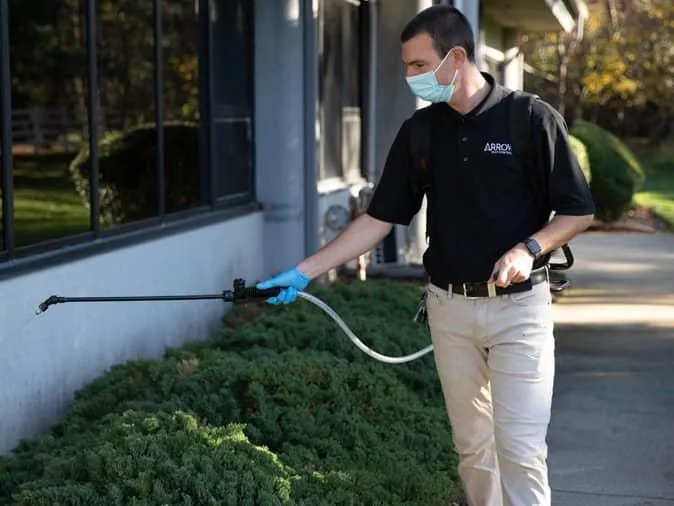
Pest Control plays a vital role in ensuring the health and safety of residents in New Jersey. With its diverse landscape and bustling urban areas, the Garden State is susceptible to a variety of pests that can pose significant challenges to homeowners and businesses. Understanding common pests, implementing effective control strategies, and seeking professional assistance when necessary are essential for maintaining pest-free living conditions in New Jersey to get Pest Control.
Common Pests in New Jersey
Identification and Characteristics
New Jersey is home to a wide range of pests that can infiltrate homes and businesses. Among the most common are rodents, such as mice and rats, which seek shelter and food sources within buildings. Insects like cockroaches, ants, and bedbugs are prevalent, often exploiting cracks and crevices to establish colonies. Additionally, wildlife such as raccoons and squirrels can cause damage and create nuisances for residents.
Potential Risks Associated with Each Pest
The presence of pests in New Jersey can pose various risks to both property and health. Rodents and insects are known vectors of diseases, including salmonella and Lyme disease, which can be transmitted to humans through direct contact or contamination of food and surfaces. Moreover, pests such as termites and carpenter ants can cause structural damage to buildings, compromising their integrity and requiring costly repairs. Additionally, invasive species of wildlife can disrupt ecosystems and agricultural activities, posing threats to native flora and fauna.
Environmental Factors Contributing to Pest Infestations
Several environmental factors contribute to the proliferation of pests in New Jersey. Changes in weather patterns, such as temperature fluctuations and precipitation levels, can influence pest activity and reproduction rates. Urbanization and human activities, such as improper waste management and landscaping practices, create conducive environments for pests to thrive. Furthermore, proximity to natural habitats and water sources can attract wildlife into residential areas, increasing the likelihood of conflicts with humans.
Strategies for Effective Pest Control
Integrated Pest Management (IPM) Techniques
Integrated Pest Management (IPM) offers a comprehensive approach to pest control, utilizing a combination of biological, mechanical, and chemical methods. Biological control involves the use of natural predators or parasites to regulate pest populations, reducing reliance on synthetic pesticides. Mechanical control measures, such as traps and barriers, physically prevent pests from accessing vulnerable areas. Chemical control solutions, when necessary, are applied judiciously to target specific pests while minimizing environmental impact.
Preventive Measures for Pest Management
Prevention is key to mitigating pest infestations and minimizing their impact on homes and businesses. Structural repairs and exclusion techniques, such as sealing cracks and gaps in walls and foundations, prevent pests from gaining entry into buildings. Implementing sanitation practices, such as proper food storage and waste disposal, deprives pests of food sources and breeding grounds. Additionally, habitat modification, such as removing debris and trimming vegetation, reduces harborage areas for pests and discourages their presence.
Professional Pest Control Services
Expertise and Experience
Professional pest control services in New Jersey offer invaluable expertise and experience in dealing with a wide range of pest infestations. Trained technicians possess the knowledge and skills to accurately identify pests, assess the severity of infestations, and implement appropriate control measures. Moreover, they have access to specialized equipment and resources that enable them to effectively eradicate pests while ensuring the safety of occupants and the environment.
Customized Pest Management Plans
One of the primary advantages of hiring professional pest control services is the development of customized pest management plans tailored to the unique needs of each property. Pest control experts assess factors such as the type of pests present, the extent of infestations, and the preferences of homeowners to devise targeted solutions. By implementing personalized treatment strategies, professionals can address specific pest issues comprehensively and provide long-term protection against future infestations.
Peace of Mind for Residents
By entrusting pest control tasks to professionals, residents can enjoy peace of mind knowing that their homes and businesses are protected against potential threats. Professional pest control technicians not only ensure effective pest management but also provide ongoing support and guidance to help prevent future infestations. By proactively addressing pest concerns, residents can maintain a pest-free living environment and focus on enjoying the comforts of their homes without the worry of unwanted intruders.
Conclusion
In conclusion, achieving pest-free living in New Jersey requires proactive pest management practices and the expertise of professional exterminators. By understanding common pests, implementing effective control strategies, and seeking professional assistance when needed, residents can create a safe and comfortable environment for themselves and their families. Embracing pest control measures not only protects property and health but also preserves the beauty and tranquility of New Jersey communities for generations to come.
